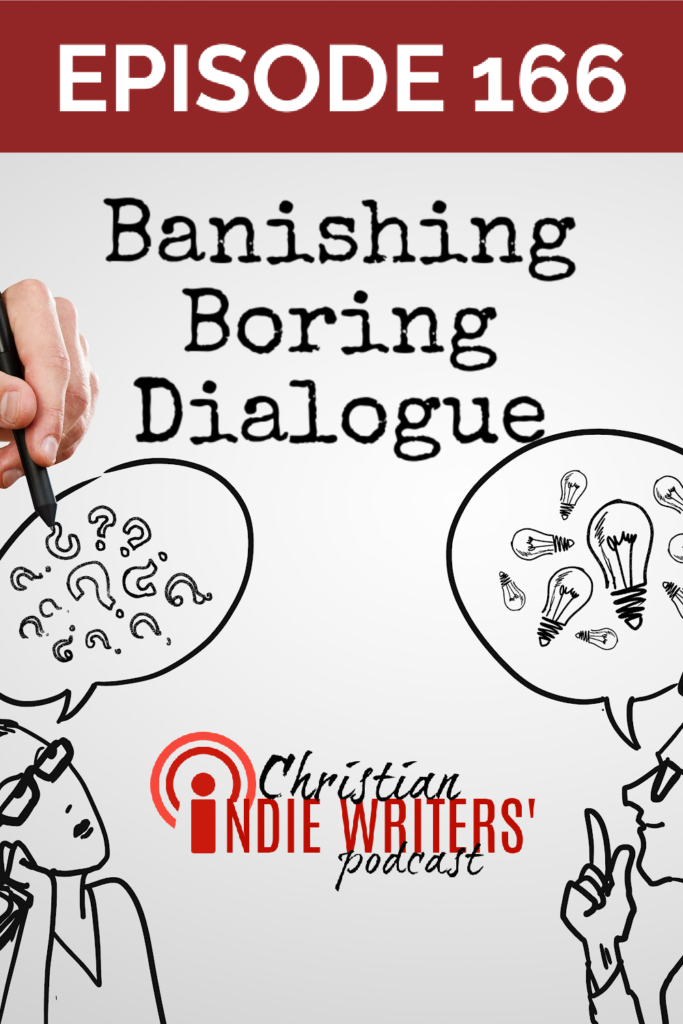Dear Christian Indies,
When it comes to writing fiction, there are so many possible perils and pitfalls for the new writer to succumb to. This week, we’re focusing on one of the biggies, dialogue.
Dialogue is the conversation between two or more characters, meaning, the actual words they are saying to one another, which is communicated to the reader with the use of quotation marks.
Here’s an example:
Fred told Sally, “Don’t eat my leftovers again, or you’ll be sorry!”
Dialogue in fiction should seem realistic, but not so realistic that your eyes glaze over, the way yours might when a stranger attempts to engage you in small talk, or the way Sally’s eyes did the entire time Fred was once again getting on her case about eating his leftovers.
“But wait,” you may be thinking. “Isn’t there a place in my dialogue for such small talk? Don’t I need to have boring conversations happen in my book in order to move my plot forward?” Or you may wonder, “If dialogue can be so tricky, how am I supposed to do to prevent having dull dialogue in my story?”
Never fear, Indie, for we will be answering these questions and more on today’s episode of the podcast!
See you there,
Jamie


